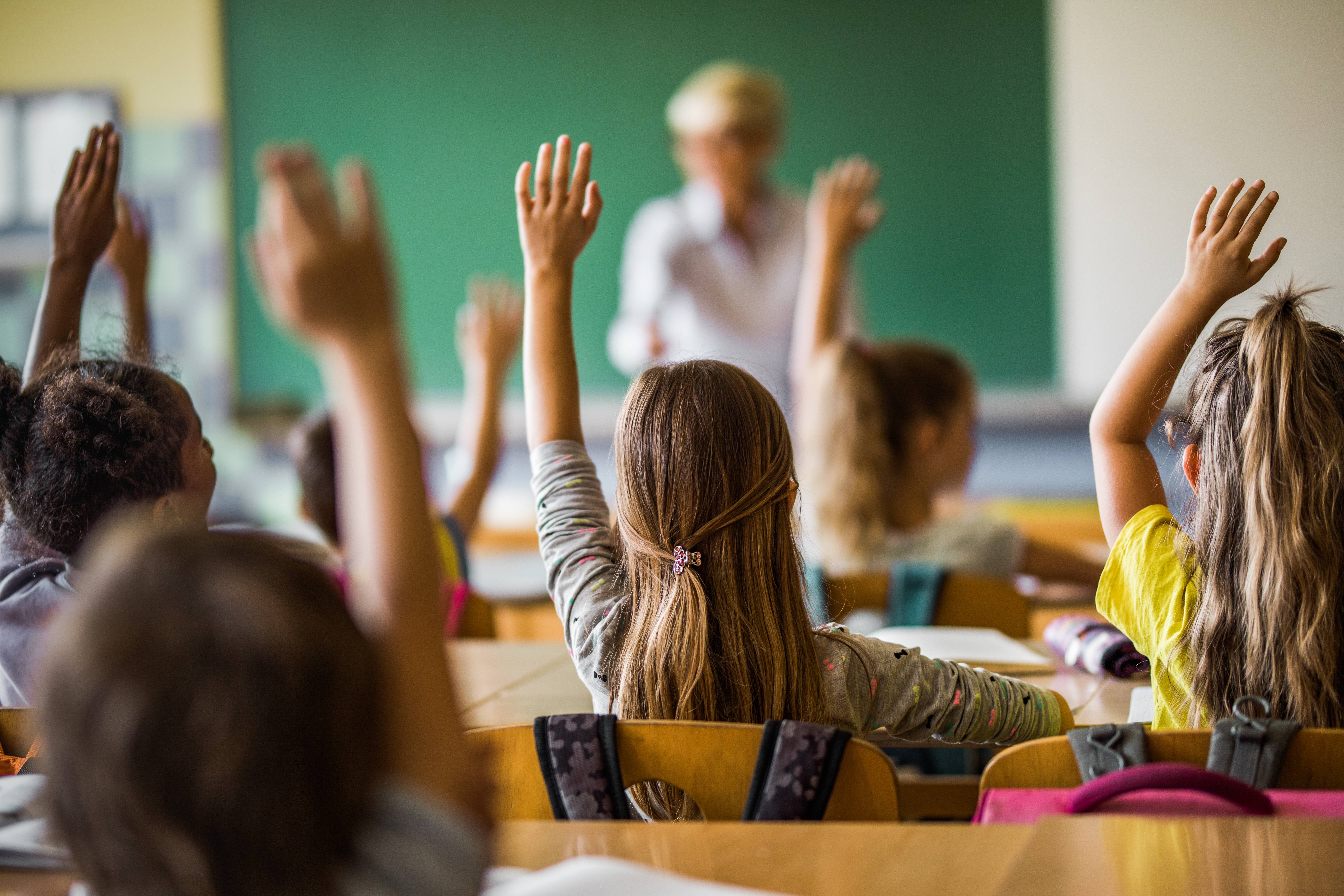Just How Schools Play a Crucial Function in Shaping Future Leaders and Innovators
By incorporating project-based knowing and interdisciplinary studies, academic establishments test pupils to evaluate and manufacture complex information. Teachers serve as advisors, directing students and nurturing their capacity, while extracurricular tasks better establish leadership abilities and durability.
Cultivating Essential Assuming
In today's swiftly progressing globe, cultivating critical believing within schools has ended up being paramount. As culture grapples with significantly complex international challenges, the capacity to analyze, examine, and synthesize info is vital. Colleges play a critical role in developing these skills, preparing students to browse and resolve multifaceted troubles with informed, reasoned choices.
To cultivate vital reasoning, teachers employ different pedagogical strategies that encourage active learning and intellectual involvement. Classroom conversations, problem-based knowing, and Socratic questioning are critical in promoting reflective and analytical idea procedures. By testing students to interrogate presumptions and take into consideration multiple perspectives, these approaches ensure a deeper understanding of subject matter beyond rote memorization.
In addition, incorporating crucial assuming throughout the curriculum strengthens its relevance and applicability in varied contexts. Subjects such as mathematics, science, background, and literary works each offer one-of-a-kind opportunities to create trainees' critical professors. Evaluating historical events calls for assessing resources and recognizing context, while clinical query demands rigorous hypothesis testing and evidence-based thinking.
Eventually, instilling crucial believing abilities in pupils outfits them with the cognitive tools necessary for long-lasting knowing and flexibility. It is via this fundamental skills that future leaders will certainly have the ability to introduce, solve troubles, and add meaningfully to society.
Encouraging Creative Thinking
Welcoming creativity within educational structures galvanizes trainees to assume beyond standard borders and discover ingenious solutions. By integrating artistic ventures and innovative thinking workouts right into the educational program, institutions cultivate an atmosphere where creativity and creative thought are valued. This method not just enriches the academic experience yet also gears up trainees with the capacity to take on real-world obstacles in unique means.
University can foster creativity with varied means such as project-based understanding, interdisciplinary studies, and the unification of arts and innovation. Project-based knowing, for instance, encourages pupils to apply their understanding in functional, commonly collective, jobs that require creative analytical skills. Interdisciplinary research studies allow students to draw connections between various topics, therefore widening their viewpoints and boosting their imaginative capabilities.
Furthermore, providing pupils with opportunities to engage with emerging innovations, such as coding and electronic style, better nurtures their innovative capacity. These activities trigger students to experiment, fail, and repeat, which are essential components of the innovative procedure (Save Temecula Schools). By keeping a helpful atmosphere where experimentation is motivated, institutions can make sure that students establish the self-confidence to go after cutting-edge concepts
Fundamentally, nurturing imagination in academic setups is important for forming future leaders and innovators capable of dealing with complex worldwide problems with resourcefulness.
Encouraging Cooperation

Applying group-based discovering components and cooperative tasks allows students to experience the dynamics of synergy firsthand. This not just prepares them for the joint nature of modern work environments however additionally nurtures management qualities as they often have to take on functions such as task managers or group planners. In addition, partnership in the classroom can damage down social barriers and advertise inclusivity, ensuring that each trainee feels valued and heard.
Furthermore, incorporating innovation can even more support collective efforts. Tools like shared interactive systems and electronic offices enable pupils to interact effectively, also outside the class. As trainees establish these joint skills, they are better furnished to deal with intricate obstacles and introduce, laying the groundwork for their future functions as leaders and trendsetters.
Function of Educators as Mentors

Mentorship involves personalized focus, where teachers determine and nurture individual staminas and address weaknesses. Save Temecula Schools. With one-on-one interactions, teachers can tailor their suggestions and assistance to fulfill each pupil's distinct requirements, fostering a sense of self-confidence and durability. This tailored method cultivates a development frame of mind, encouraging trainees to check out failures as chances for finding out and growth
In addition, teachers act as good example, showing the values of honesty, perseverance, and empathy. Their activities and mindsets give a plan for students to emulate, instilling a sense of moral duty and social understanding. By creating a inclusive and supportive classroom atmosphere, educators allow students to develop social skills that are important for efficient management.
Essentially, the mentorship supplied by instructors lays a foundational framework for the development of future leaders, furnishing them with the knowledge, abilities, and values needed to master an ever-evolving globe.
Effect of After-school Activities
When integrated efficiently into the academic framework, extracurricular activities dramatically improve pupil advancement and leadership possibility. These tasks offer trainees with possibilities to discover interests past the traditional educational program, promoting a versatile skill set.
Furthermore, extracurricular involvement motivates creativity and innovation. Trainees participated in dramatization, songs, or argument clubs discover to think seriously and strategy issues from varied viewpoints. These experiences infuse confidence, enabling pupils to articulate their concepts and take campaign in different settings. By collaborating with peers from various histories, students also create compassion and interaction skills, essential traits for future leaders.
Research study indicates that pupils entailed in such programs have a tendency to have higher qualities and far better attendance documents. Thus, institutions that focus on Recommended Reading a balanced approach to education and learning, incorporating robust extracurricular programs, are much more most likely to produce leaders and trendsetters geared up to fulfill the challenges of the future.

Verdict
To conclude, institutions dramatically shape future leaders and pioneers by supporting critical reasoning, creativity, and partnership among pupils. Engaging instructional approaches such as project-based knowing and interdisciplinary research studies play an important duty in this development. Educators, serving as coaches, supply important guidance and assistance, while extracurricular activities better boost management potential and read more resilience. By fostering a helpful setting that values individual strengths and teamwork, colleges equip trainees with the necessary abilities to navigate future difficulties and drive development.
As trainees create these collective abilities, they are better equipped to take on complex difficulties and introduce, laying the foundation for their future duties as leaders and trendsetters.
By cultivating important thinking and analytical abilities, educators aid trainees navigate complicated challenges, preparing them for management functions in different fields.
By working together with peers from various histories, trainees additionally develop empathy and interaction abilities, important characteristics for future leaders.
In conclusion, institutions significantly form future leaders and trendsetters by supporting vital reasoning, creative thinking, and partnership among students. By promoting a supportive atmosphere that values specific toughness and teamwork, colleges outfit trainees with the required abilities to navigate future challenges and drive development.